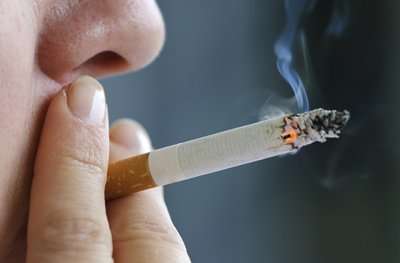Helping cancer patients quit tobacco for good

A new treatment program that combines the power of technology with tried and true methods to help cancer patients overcome their addiction to tobacco is ready to enroll its first patients at Penn Medicine's Abramson Cancer Center. As part of the program, doctors are alerted about a patient's tobacco use through the electronic medical record. At that point, an automated referral is made for the patient to Penn's Tobacco Use Treatment Service (TUTS), which then directly provides patients with state-of-the-science tobacco use treatment in an effort to get them to quit for good and assist with their medical treatment and recovery.
Nearly 10 percent of survivors continue to smoke cigarettes, according to the American Cancer Society. More than 80 percent of those survivors smoke every day. And, importantly, the most recent United States Surgeon General's report concluded that, based on the existing scientific evidence, quitting smoking improves the prognosis of cancer patients.
"We wanted to develop the infrastructure to ensure that all cancer patients are screened for tobacco dependence and contacted by a trained tobacco treatment specialist who can help them quit," said the project's co-leader Robert A. Schnoll, PhD, an associate professor in the Department of Psychiatry, the co-leader of Penn's Tobacco and Environmental Carcinogenesis Program, the program leader and director of the Center for Interdisciplinary Research on Nicotine Addiction, and a member of Penn's Abramson Cancer Center.
Once doctors get an electronic alert about a patient's tobacco use, that patient is screened for available smoking cessation clinical trials or for a smoking cessation program. Certified Tobacco Treatment Specialists then provide behavioral counseling and recommend medication, and each patient is provided with an individualized treatment plan. This can also include referral to the free PA Quit-line cessation service, navigation to find medication, and hands-on, individualized in-person or phone smoking cessation counseling.
The initial focus of the program is the Department of Radiation Oncology, which Schnoll says they chose because it "provides a nexus point for many cancer patients, so we can ensure substantial access to Penn patients."
"Our oncologists are dedicated to addressing tobacco dependence among our patients, and we as a department are committed to expanded training and education," said James Metz, MD, chair of Radiation Oncology. "Being part of an academic institution like Penn gives us the chance to work with outside departments to further these sorts of important initiatives to improve patient care, and we're always pleased to take advantage of opportunities like this."
"Building this program in such a focused population will allow us to understand what works best and what needs to be refined," said the project's co-leader Frank T. Leone, MD, MS, an associate professor of Medicine. "In the long term, we hope to bring this program to the rest of the Abramson Cancer Center and possibly other specialties throughout the health system."



















